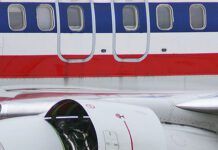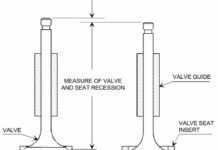Northwest Airlines and Metropolitan Airports Commission
A lot of folks, both in the aviation business and others, have had to face the reality of increased costs and hardships in the post-9/11 era (NewsWire, May 3). Is it too hard to understand that the private aircraft owner is going to have to share some of these responsibilities? Mr. Boyer has held flimsy position on the “rights” of a private pilot even before 9/11. You would think some moderation would be in order at this juncture. Bullheaded lobbying is coming under fire in all sorts of political venues in the light of the ultimate show-stopper, where the rubber meets the road: money. If the average passenger, even in the great, liberal state of Minnesota, knew how much money from their ticket to Hawaii was being used to support private aviation, they would probably become Republican. It is time for Mr. Boyer to come up with a platform that is both fiscally and practically viable to lend some validity to his organization. These are the opinions of a private aircraft owner with enough sense to realize potential outcome if we dont start to assume a little more financial responsibility.Marc Bedrosian
I think the GA community would be more than happy to start paying some of the fees the way the airlines do, but in return how about we get our share of the billions in handouts and tax breaks given to the airlines in the past few years. As it stands, the last time I flew into MSP, there were landing fees. In addition, if NWA doesn’t understand the benefit of keeping little planes out of MSP, I think the area pilots ought to show them. Those 2000 or so airplanes ought to arrange to arrive at one of the MSP FBOs during one of NWA’s peak “hubbing” times.David Leedom
Teterboro Tower
Your article regarding the proposal for a Ferris Wheel near Teterboro Airport (NewsWire, May 3)also included information about an application for a 421-foot tower case number 2004-AEA-633-OE. What your article doesn’t mention is that there are already approved towers at this same location, one of which is taller than what is being proposed by 2004-AEA-633-OE.Scott Clifton
FSS Privatization
Concerning the privatization of of the FSS system (NewsWire, May 3): If anyone out there believes that there is serious discussion about not privatizing the FSS system, they are living in a dream world. I think this will happen regardless of the amount of money “someone” says they can save. The calculated savings will be nothing more than “pretend dollars” and not only will be a phony number but will never be checked after the date of acceptance. Whatever the amount it takes to trigger this in someone’s mind will magically appear. Certainly us GA pilots will have no say in the matter. Anything else that causes the cost of GA type flying to increase hastens the death knell of what we refer to as “freedom of the sky.”I suspect that when we have to start paying for every service (filing, weather, en route, landing, etc), we will have (for a short time until they make it a criminal action) much more flying without flight plans or good weather briefings.The government likely already has a plan in place and it will happen. We will not have a choice (or voice) in the matter.Dale Carlson
I am an air traffic controller at a Level 7 ATCT (air traffic control tower). I am also very familiar with the service provided by the AFSS personnel. The service provided by the FSS to GA pilots and to ATC facilities far surpasses that rendered by the lower-level ATCTs. More training and knowledge is required by the FSS personnel and a larger infrastructure is needed to support their mission. Privatization affects the number of personnel on the job but not the quality of the professionalism; equipment upgrades would be harder to get. In this regard, privatizing lower-level facilities would have no affect on safety, but reducing the personnel at the AFSS would be a major blow to a very valuable resource.A lower-level ATCT might deal with an aircraft on average for three minutes without any assistance outside the Class D Area. The en route phase for a GA pilot is far more important for a safe and successful flight. Government tends to pay more, overstaff and overfund what it controls. If any service needs that kind of support, it is the FSS personnel. They need to be there when they are needed. The FAA should pour more resources into the FSS. It’s the biggest bang for their buck.Andrew Zastrow
Moving Presidential TFRs
Fellow aviators:Do you not see the threat in the recent TSA announcement of a moving 10-nm radius temporary flight restriction that extends up to 17,999 feet MSL, centered on the presidential motorcade as it moves through Michigan today? Nobody can tell us exactly where the bus is (for national security), but fly within 30 nm and you will be forced down, and you could end up dead. Either way, flying anywhere near Michigan today is clearly like playing Russian Roulette, or hiking through a minefield.I foresaw the likelihood of such an unmitigated abuse the day after 9/11. Since Bushs hostility toward general aviators is well-known, he surely is not counting on our support in the general election in November. Perhaps now he is fabricating an excuse to quite literally exterminate us in the name of national security?Just how big a logical jump is it from a moving TFR for a bus motorcade to a moving TFR for Air Force One with use of deadly force authorized? Imagine a squadron (or a whole wing) of F-16s gearing up to shoot down anything in the path of Air Force One (within 30 nm) as it secretly sweeps through the U.S. skies, killing off general aviation, one plane at a time, to help make the president re-electable?Think about it. What kind of Republic allows its chief executive to so easily eliminate law-abiding citizens who have differing viewpoints? If the threat were reversed, one of us would be going to Leavenworth for the rest of his life.How long would it take, anyway, to eliminate GA this way? After one or two sweeps, nobody in his right mind would dare take to the skies again, unless he or she was flying one of those F-16s, or maybe an F-117. “Flying the friendly skies” is definitely on borrowed time, with or without Sport Pilot regulations. The skies in our nation are no longer friendly.And where was AVweb in reporting the unprecedented moving TFR? Bruce Liddel
Boeing 7E7
Your coverage of the 7E7 was unfair, with a definite anti-Boeing bias (NewsWire, Apr. 29). The 7E7 promises the next step beyond anything Airbus is offering, and has wings and fuselage made of composites, which no Airbus offers. The promised 10-20% fuel savings is not a “relatively low” gain, as you implied. U.S.-based airlines are generally still buying Boeings (some of the most successful, such as Southwest, fly only Boeings.) In your “question of the week”, the options you have for answers were mostly negative — the only one that wasn’t at least partly negative to Boeing was the second one, which merely restated a fact, rather than an opinion (that the Dreamliner promises better performance/efficiency.)And while portions of the 7E7 (about 1/3) are outsourced to Japan and other countries, that is nothing new, and not necessarily bad. All Boeings include many foreign components. In fact, if outsourcing allows Boeing to produce a competitive product, than in reality, it is saving the hundreds of U.S. jobs (building the 2/3 of the parts that are made domestically) that would be lost if the project was uncompetitive.Fifty orders is the largest launch order ever, not (as you implied) a sign that Boeing is desperate. Especially when they have also announced that they are in discussions with over a dozen other airlines, and expect more orders shortly. Also, the discounts you mention are only assumed — they were not disclosed. Furthermore, such discounts are routine (Airbus is a huge discounter oftentimes), and therefore not something to play up as another sign of desperation on Boeing’s part.I don’t know what press releases you read, but from what I can tell, Boeing has a winner on their hands, as long as they can deliver what they promise. This isn’t an also-ran against Airbus. This is what Airbus will have to develop next in order to stay in the game (most airlines in the world aren’t in the market for the 600-seat behemoth A380, whereas a 200-300 seat, fast and fuel-efficient 7E7 fits the bill for most airlines out there within the next decade — especially with rising fuel prices.)So that’s my opinion. All I’m asking is that you keep up your usual, fairly balanced reporting. The 7E7 bit just wasn’t up to par — sorry.Todd Pettibone
AVweb Replies I disagree that there was any bias in that story. We merely pointed out the facts. Full marks to Boeing for the flexibility it’s showing to get back in the game of creating new airliners. We will watch the story unfold with interest. Russ Niles Newswriter | ||
Garmin Pricing Policy
Sorry, but Mr.Casey’s official response as to the accepted “legality” of Garmin’s GPS pricing policy (AVmail, May 3) did very little to make their prices sound better or assure me that it is a “right” thing to do. In fact, after reviewing the financial figures at their website I’m much more inclined to agree with Mr. Anderson that their new policy really just keeps prices high. Garmin’s net profit margin for 2004 comes to about 23%, an amazingly high number for any business, especially for an aviation business. But, horrors! it’s down from 33% last year, so obviously some changes must be made. Cutting out dealers who sell your stuff too cheaply may be common in consumer electronics, as Mr. Casey noted. That’s an industry noted for competition and variety, so the consumer has other choices and a company too “protective” ultimately hurts itself. But when your company has little real competition in a smaller market (unlike those in the legal references making shoes and toothpaste) the consumer has little choice and just pays more. That kind of education I can do without.I have a older Garmin handheld and it’s good, but I can’t justify the cost of a new one. I guess the old one do just fine.Rick Lentz
Sport Pilot Question of the Week
Regarding your Sport Pilot Poll (QOTW, Apr. 21): Surveys like this are just a bunch of meaningless junk. Only one response in the five available was positive, and even it intones that I might be able to keep flying longer than I should be. All others were skewed towards negative attitudes toward SP. Looks like a no-win poll to me.Cal Anderson
AVweb Replies Calvin, you’re not alone in your interpretation of that Question of the Week (QOTW). In this case it seems that some readers felt the negative options were over-represented and therefore part of some larger agenda. This is not the case. Truly, there is nothing negative about “continue flying in my golden years”. But we understand how some readers may taint this answer due to its proximity to the others. It should be remembered that QOTW needs to represent a range of opinions and if we do our job well you will disagree with some of the them … and strongly. Please note, too, that the most “positive” answer won 63% of the votes. The more “negative” answers pulled a combined 37% of the results, which I believe validates their presence and — because of their range — helps provide a more complete portrait of pilot opinion on the subject. In doing so, those answers also provide a better idea of tangential issues that may warrant some attention as Sport Pilot moves along or after it is adopted. In the end, QOTW was not born of scientific method and doesn’t pretend to offer conclusive results of … anything. It’s there to help people gauge their opinions against a larger group and in that way offer a forum for interaction. I’m under the impression it’s working very well. Glenn Pew Editor | ||
Helicopter Landing Sites
Regarding you latest about a helicopter out of a back yard (NewsWire, May 6), I always believed that it was legal to land a helicopter anywhere it was not prohibited, so long as it was not in a careless and reckless manner.I seem to remember a previous report of a pilot being cited by local authorities for landing a helicopter during a medivac, because it was prohibited by a local ordinance.Maybe I am off, but that is what I thought I had been taught throughout my flying.Tim Garbat
AvGas vs. AutoGas
I enjoyed your article (Maintenance, May 5). Having run both auto, 80/87 and 100LL in my Cessna Agwagon, there is no question that I would choose 100LL every time.Why?Consistency. When you buy auto gas you do not know what you are getting unless you buy it from the same source every time, and then you really can’t be sure because refineries change formulas all the time and they do not notify the consumer that they have done so. When on an extended X-C, this can be problematic.As a former rubber chemist who worked for a number of years for a hose manufacturer, I can tell you with authority that MTBE is one of the worst things you can put through an older aircraft engine. It extracts plasticizers from the nitrile compounds. Not a big deal unless you happen to have an extended period where there is little or no fuel in the tanks. As long as there is fuel in the tanks, some of that fuel will fill the chemical void left by the departing plasticizers. Let the fuel evaporate and you will end up with a dry, brittle nitrile rubber whatever.My Agwagon was out of service for 15 months for an extensive rebuild and repaint. When we refueled it for the first time the supply hose from the filter to the carburetor looked like one of those lawn soaker hoses. There must have been over 100 pinhole leaks in that hose. (Replacement $113.00)The tank seals around the fuel quantity indicator also failed.I don’t know what engine manufacturers are using nowadays for fuel line and carburetor seals. I hope it is one of the more exotic fluroelastomers because good old fashioned nitrile will not stand up to MTBE and anybody with nitrile seals running MTBE formulated fuel is in for eventual trouble, especially if he lets those seals dry out.What do I really like about 100LL? Peace of mind while committing aviation! To me, it’s worth the price.Jules Gilpatrick
AVweb Replies That’s certainly a safe approach — not that different from what I wound up doing. But after talking to a lot of pilots who have good results with AutoGas, I was convinced. Most of them always buy from the same source in order to get as much consistency as possible; many also test their gas. Nearly all use AvGas when traveling. Added together, I think that makes the risk pretty minimal. You’re quite right about keeping the tanks full — that’s a good practice regardless of what kind of fuel is used! John D. Ruley | ||
I am the airport manager at one of largest privately owned airports in the U.S. We also operate the FBO. With my airport manager’s hat on, I am concerned about the legality and liability of fueling.It is illegal at an airport in Wisconsin to fuel an aircraft out of a non-aviation approved system or any container (such as a 5 gal can) if a grade of fuel is available for sale at that airport that the aircraft is approved to burn. In other words, I sell 100LL and if your aircraft is approved to burn 100LL, it would be illegal for you to put auto gas in your aircraft here.I don’t personally have a problem with auto gas except that we only have RFG gas in this section of Wisconsin and I am not sure how that will react in aircraft. I know it is only good for about 30 days in storage.I tried to sell it here, but the insurance company would not insure me and I could not find a single dealer in the five-state area that would sell mogas to me for use in aircraft.The only negative aspect I have concerning mogas is that it caused the demise of 80/87 and is causing 100LL to cost more because we are selling less. I honestly believe we shot ourselves in the foot with mogas.David Mann
AVweb Replies I had no idea that Wisconson (or any other state) had such a law on the books. I would think that the FAA’s rulings would trump it in court–but I’m not a lawyer. The practical problem you mention with gasoline distributors and insurers makes it irrelevant in any case; though I’d think it would be a lot safer for people to use a proper fuel pump rather than bringing their own gas in cans. John D. Ruley | ||
GA Noise and Airport Closures
There have been quite a few articles lately regarding GA aircraft noise (NewsWire, May 6), request for GA airport expansion and threats of closure. All these spell doom for the future of GA. Almost nobody wants GA around, with the only exception of the pilots and owners.The media doesn’t help at all with their inaccurate information and hysterical, sensationalized reporting. The media regards GA as a hobby for rich people.The lawyers and politicians want more money from GA in the form of law suits, taxes and user fees. There will never be any relief from $3.00/gal avgas prices. Insurance costs will go up, especially if some political dork wants terrorist insurance. I can’t afford this endeavor any more, I’m selling my plane. I just hope it sells before I have to spend any more money on it, or a terrorist attack closes down all GA.I hope the rest of GA pilots can continue flying but sooner or later, GA in the U.S. will be like GA in Europe. It will be too expensive or too much of a pain in the ass to continue.Robert Kingdom
Pilots Needed For Flying Adventure to Mexico
Arvada Rotary Club is seeking two pilots with aircraft to fly optometrists, opticians, and eyeglasses to Guachochi, Mexico for our “Eyeglasses for Mexico” project June 2-7, 2004.Some expenses will be reimbursed, but those that are not are tax-deductible. Arvada Rotary is a 501c3 tax-exempt organization.You can make a difference in the lives of many impoverished people who live in this rugged canyon area.We will fly together as a group. You will travel with many people who have been in Guachochi. We work together to fit free eyeglasses to the people who need them. Please contact Jack Emery for more details.Steve Olson


































